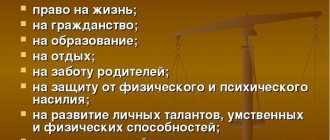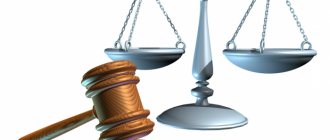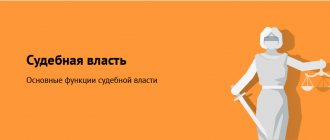Situations where children become victims of social phenomena, harsh treatment and injustice are not uncommon in the modern world. Due to the relevance of the issue, this problem is given special attention both in Russia and abroad. At the international level, there is an independent mechanism whose goals are to ensure and provide protection to children throughout the world.
In particular, a position was introduced in Russia - the Commissioner for Children's Rights in Russia (this is a children's ombudsman). This committee is intended to provide additional protection to minors. What it is, by whom and who is appointed to the position, what are the goals of the ombudsman - is described in detail in the article.
Basic and special rights of the child in the Russian Federation
Every child born in the Russian Federation has his own rights. They are enshrined at the legislative level and protected by the state. The duties of the Ombudsman include monitoring the observance and protection of children's rights.
Every child has the same rights as an adult. For example, the right to life and the right to housing. But, due to the age of the copyright holder, not all of them can be implemented in full force. Therefore, those that are specific only to minors are included in a separate legislative line.
The main legislative acts in determining the interests of children are the Constitution of the Russian Federation and the Declaration on the Rights of the Child, adopted at the international level. These documents set out the following standards:
- The right to have a family. Every Russian child should have his own family. He must be brought up in it until it becomes “too small” for him, that is, his rights will not be infringed and there will be no contradiction to his interests. The legal age when this can happen is 18 years. Emancipation is provided for – “early” coming of age.
- Right to communicate. Regardless of whether the child’s parents are legally married or not, he has the right to full communication with both of them, as well as with grandparents on both sides. No parent has the right to put forward a prohibition regarding communication between a child and the other parent. Only a judicial authority can issue a legally justified ban in the presence of certain circumstances. For example, communication with the father causes psychological trauma due to immoral behavior.
- Right to protection. The object includes the health of a minor and his life. It is also possible to protect from the harmful influence of relatives, acquaintances, the environment, and the lifestyle of the parents.
- The right to have your own opinion and express it. When parents or authorized bodies decide the fate of a minor, they must take into account his opinion. After the child turns 10 years old, he can influence the decisions of these organs regarding his future life. For example, parents get divorced and cannot agree among themselves about which of them their child will live with. If the child is 10 years old, the court will ask his opinion and take it into account.
- The right to have a last name, first name and patronymic. If his parents are unknown, then guardianship authorities, medical workers, and employees of the institution can give the child’s name.
Note! This is an incomplete list of rights that every Russian minor has. He can study in Russia, receive free medical care, and be protected from various inequalities.
The Commissioner for Children's Rights in Russia is vested with broad powers to protect them
If any of the presented and secured rights are not respected, there are authorized bodies to which you can turn for protection. This:
- the prosecutor's office is a supervisory body that oversees many areas of Russian legislation;
- guardianship authorities - deal exclusively with children, their problems, their protection;
- court;
- commissioner for minors at the regional level;
- Commissioner for the protection of children's rights throughout the country.
Who is the Ombudsman for Children's Rights? This is a person who has certain powers aimed at protecting the interests and rights of all children born in the Russian Federation and having Russian citizenship.
Anna Kuznetsova - personal life, husband, children, who are the parents
In 2003, 21-year-old Anna Bulaeva got married and officially took her husband’s last name. Her husband Alexey Kuznetsov serves as a priest in the Church of the Resurrection of Christ in the village of Uvarovo, Issinsky district, Penza region. In all subsequent years, the couple showed by their example what a real traditional family is.
Anna and Alexey lead a lifestyle that complies with moral standards and gave the world seven children. First, two daughters were born, Maria and Daria, and then four sons, Ivan, Nikolai, Timofey and Lev. Anna gave birth to her youngest, seventh son at the end of May 2020, the boy was named Peter.
It is very interesting that Anna Kuznetsova does not stay in the maternity hospital for more than one day after giving birth. The priest’s wife believes that since pregnancy is not a disease, there is no point in staying in the hospital. So, the very next day after the birth of her seventh child, the woman made a report and appeal.
Friends, acquaintances and colleagues unanimously wonder when Anna Yuryevna rests. This small and fragile woman is constantly on the move, and manages to work full-time as a public figure and competently run the household - the house is always in order. In addition, Kuznetsova cooks delicious food and sews her own clothes. At the same time, the politician keeps up with modern technologies and maintains an account on Instagram.
Russian and international laws protecting children's rights
Russia must adhere not only to the norms of its internal, Russian legislation on children, but also to comply with international norms. The main legislative acts include:
- Constitution of the Russian Federation;
- Family Code of the Russian Federation;
- Convention on the Rights of the Child;
- Law No. 124-FZ of July 24, 1998;
- Law No. 436-FZ of December 29, 2010;
- Law No. 501-FZ of December 27, 2008;
- Law No. 1-FKZ of 00.26.1997;
- Other normative acts - conventions, presidential decrees, resolutions.
Note! Not only children themselves, but also their representatives, strangers, and employees of medical, social or educational institutions can apply for protection of children’s rights.
Criticism of the position
The position of the Ombudsman for Children's Rights is not specified in any law. This is its main drawback. A presidential decree alone is not enough to establish a broad and effective network of bodies dealing with children's rights.
Everything is quite complicated with regional ombudsmen. They are often criticized for supporting government initiatives aimed at infringing on the rights of minors. For example, children may have limited social, economic, or even political freedoms. It is known that a child has the right to his own opinion and participation in peaceful assemblies. Today, the authorities completely protect children from politics, which may not be entirely true. Finally, the system itself for protecting and supporting children’s rights is not built in the most correct way. Many experts consider it extremely ineffective and even useless.
Who is the Ombudsman for Children's Rights?
This is a person holding a position and meeting certain requirements, who, on the basis of Russian and international law, protects and defends the rights of children. In addition, he is given additional tasks that must be completed.
Requirements for the Ombudsman for Children's Rights
In Art. 14 of Law No. 501-FZ, which directly regulates the activities of the children's ombudsman, spells out a complete list of requirements for a person applying for this position. If at least one condition is not met, the appointment will be denied.
To become a child protection ombudsman, you need to:
- monitor the implementation of norms for the protection of children's rights in the territory of the entrusted subject of the federation. After studying, the information received needs to be analyzed and conclusions drawn;
- provide widespread assistance to the effective functioning of the state system for the protection of the rights of minors, their implementation and control over their implementation;
- take measures to prevent and suppress illegal actions against children.
All actions of the ombudsman must be confirmed by the programs being developed, actual actions within the entrusted subjects, actually adopted regulations and ongoing activities.
The requirements for a person applying for this responsible position are specified in Art. 11 of Law No. 1-FKZ. Potential Authorized Person:
- cannot be a deputy of the State Duma of the Russian Federation, members of the Federation Council of the Russian Federation, be a member of the regional deputy composition, be in the civil service, or engage in any paid or unpaid activity. The exception is teaching, scientific or creative activities;
- cannot be a citizen or subject of another state, he cannot have a residence permit in another country;
- he cannot conduct active political activities, be an active member of a party or other public association of people whose goal is political interaction;
- must cease his activities included in the prohibited list at least 2 calendar weeks before taking office.
If at least one of the conditions is not met, the applicant will not be appointed to the position. The appointment takes place by Resolution of the State Duma of the Russian Federation and the Decree of the President of the Russian Federation.
People who can apply for the position of UPPR have the right to be proposed to the President for consideration by any government agencies, public associations and other institutions. In addition to the requirements presented in Art. 11 of Law No. 1-FKZ, there are additional ones. This:
- age not younger than 30 years;
- availability of higher education received in Russia in any specialty;
- impeccable reputation;
- practical experience in conducting human rights activities when working with minors.
Compliance with the totality of all requirements is mandatory for a potential RF UPPR.
Requirements for the Ombudsman for Children's Rights are defined in federal legislation
Functions of the Commissioner for Children's Rights
A person in such a position has certain functions and tasks that he must perform within the framework of his powers. The list of functions includes:
- timely control over the implementation and full compliance with all regulations adopted at the regional and federal levels and relating to minor children. All subordinate authorized persons must submit timely reports in these areas;
- if violations are detected, full assistance in restoring rights;
- overall control over how authorized local bodies eliminate violations within the framework of identified violations, if necessary, developing measures and making recommendations;
- analysis of practice, generalization of the results obtained, work to improve them with the involvement of specialists;
- psychological and other work with parents whose children find themselves in a difficult situation both psychologically and mentally;
- ensuring cooperation and interaction of various related authorities to solve problems;
- carrying out work with parents or other legal representatives of children on training and education programs regarding the protection of children's rights;
- providing protective measures for offspring against offenses that may be committed against them.
The ombudsman also has a list of tasks that he must perform:
- control over ensuring that Russian and international legislative acts are observed throughout Russia;
- making recommendations to local authorities with a view to presenting possible violations of children's rights;
- generalization of information obtained practically;
- development of measures that can minimize the risks of committing illegal acts against minors.
Who is the Ombudsman for Children's Rights?
Note! Each region is provided with a list of tasks for the long and short term. They must be completed by the deadline.
Tasks of regional ombudsmen
To better understand what exactly local children’s rights ombudsmen do, it is necessary to identify several tasks and legal capabilities of these persons. Here is just a small part of the functions:
- analysis of the state of affairs in the field of protection of freedoms and rights of minors;
- work on the analysis, study and preparation of amendments to regulations relating to the protection of children's rights;
- assistance in restoring violated children's interests;
- filing applications to the court with a request to initiate liability against persons guilty of violating the rights of minors;
- ensuring the safety of the interests, freedoms and guarantees of minors.
The activities of subject ombudsmen differ significantly from the work of law enforcement agencies. Thus, the prosecutor's office must monitor the proper implementation of the law, as well as coordinate the activities of law enforcement agencies. The Commissioner for Children's Rights does not look for a problem, but deals directly with its solution. He identifies effective methods of combating injustice, makes certain cases public, and consults with the central committee or international authorities. Thus, there are incredibly many areas of activity of the Commissioner for Children's Rights.
Grounds for early release of the Ombudsman for Children's Rights
There are certain circumstances, upon discovery of which, the commissioner for the protection of minors may be removed from his position. These circumstances are prescribed in regional and federal legislation. In Art. 13 of Law 1-FKZ provides an exhaustive list:
- violation of the requirements given in Art. 11 of Law No. 1-FKZ;
- the conviction in a criminal case that was made against this person has entered into force;
- manifestation of the commissioner’s own initiative to resign his powers in this area.
If a person in such a responsible position cannot perform his duties for 4 months or more due to health reasons or other reasons, his powers may be terminated by a decision of the State Duma, which is adopted after a meeting on this topic.
The basis for termination of powers and early dismissal of the Commissioner is the Resolution of the State Duma of the Russian Federation.
Why did Anna Kuznetsova leave her post and where did she go?
Children's Ombudsman Anna Kuznetsova has been relieved of her post. The President of Russia issued a corresponding decree. The text of the document states that Kuznetsova’s dismissal is connected with her election to the State Duma of the eighth convocation. She was appointed to the position of children's ombudsman in 2021.
Peculiarities of the activities of the Commissioner for Children's Rights
When an official appointment to a position occurs, the Commissioner receives an appropriate certificate that helps him exercise his powers to the fullest extent. Upon presentation of the document, it must be freely allowed into all institutions, buildings, organizations, and public associations that exist in Russia. He can obtain any information, justifying the demand by the fact that it is necessary to protect children's rights.
The certificate is valid for the entire term of office unless terminated early. The term of office of the Commissioner is prescribed in the Presidential Decree.
The activities of the UPPR are regulated and ensured by the Public Chamber. But he has the right to independently determine the following categories of assistants for comfortable and fruitful work. This:
- representatives in the regions on a permanent or temporary basis;
- experts, consultants in various fields;
- composition of working groups.
Note! All bodies and groups that are created by the RF UPPR for more rational activities conduct work on a voluntary basis. Both government employees and private experts can be involved.
Work report
A report on the work is produced in full, informing the public and all interested authorities.
All activities are accountable, which means they are documented.
Reports can be monthly or annual. In the latter case, a full report is drawn up with statistics included and all indicators related to minors and their rights.
On a note! Authorized persons have the right to demand the generation of such reports from the bodies under their control and the provision to them of complete information in the required form. From such reports, statistical calculations are made with the involvement of the required specialists and organizations.
All reporting is used to provide society with a focus on issues related to childhood and the rights of minors.
Read also: Extension of maternity leave
Grounds for appeals and complaints to the Commissioner for Children's Rights in the Russian Federation
You can contact the Ombudsman in the following cases:
- authorized regional bodies are inactive or take unlawful actions. For example, failure to provide housing for orphans;
- it is necessary to challenge the act of the justice authority in relation to a minor, issued in accordance with Russian legal proceedings;
- the need to carry out further procedural actions.
A parent or other legal representative can apply.
What rights does a child have?
Since, according to the law, a child in the Russian Federation is a full-fledged citizen, he is endowed with certain rights at birth.
His rights are protected constitutionally and by the Declaration of the Rights of the Child. Due to circumstances (age restrictions), a minor citizen does not have the opportunity to protect his own life, health or provide for himself financially, therefore this right falls on an adult - his parent or guardian.
In addition to the general rights prescribed in the current legislation, a child in a difficult life situation is subject to special protection by the authorized person. Let's consider which children can receive help from the Ombudsman in the Russian Federation.
Rules for writing and filing an application to the Commissioner for Children's Rights
Any written appeal from a citizen of the Russian Federation, including to the UPPR of the Russian Federation, is drawn up in accordance with Art. 7 of Law No. 59-FZ. That is, it:
- must be free of blots, errors and corrections;
- contain up-to-date and reliable information;
- don't be anonymous. It is necessary to provide information about the applicant or his representative;
- signed.
Note! Anonymous complaints from citizens are not accepted for consideration.
Procedure and methods of contacting the Children's Ombudsman
There are several ways to contact the Children's Ombudsman:
- personal by appointment at established reception hours;
- electronic;
- using Russian Post.
The most popular method of circulation is electronic. There are several options:
- through the official website of the RF UPPR. You need to enter all the necessary information into the form, then the system will accept the request;
- via official email address;
- through an official account on popular social networks.
Note! The situation that led to the filing of the complaint should be discussed in detail in the appeal. The use of profanity, rude words, and insults towards third parties is not permitted.
The main goals of the activities and projects of the commissioner’s institute
This institute was created specifically to ensure the protection of the interests of children in the Russian Federation. The specialist is obliged to monitor the implementation of current regulations that relate to minors. If a complaint is received about existing violations, he is obliged to consider it and provide a response within the established time frame.
At the moment, 3 projects are being implemented at the federal level, namely:
- "Don't park the child" . It is aimed at ensuring that parents do not leave minor children alone in the car. This is due to the possibility that the child will start the vehicle and drive off, suffer heatstroke or various injuries. It is also possible that the car will be stolen or taken away by a tow truck when the baby is in it;
- “My choice is life and health . This program was created specifically to instill family values in young people. It is designed for citizens under 30 years of age. The program also involves the introduction of new ideas for educating minors and instilling in them a healthy lifestyle;
- school for parents of children with chronic progressive diseases . The project has been running since 2015 at the Bashlyaeva Children's City Clinical Hospital. The goal is to provide support and advice to parents who are faced with various childhood diseases. Specialists also deal with the integration of children into the social environment.
Thus, the children's ombudsman not only monitors the observance of the rights and freedoms of children, but also assists in their implementation.
Dear readers! To solve your problem right now, get a free consultation
— contact the on-duty lawyer in the online chat on the right or call:
+7
— Moscow and region.
+7
— St. Petersburg and region.
8
- Other regions of the Russian Federation
You will not need to waste your time and nerves
- an experienced lawyer will take care of solving all your problems!
Options for resolving complaints
The Ombudsman has the right to accept or refuse a complaint for consideration. If he refuses to consider an appeal from citizens, then his responsibilities include a written justification for the refusal and its substantiation by regulations.
Regarding the acceptance of complaints for consideration, the UPPR has the following options:
- consideration of the complaint as a higher authority. For example, the applicant had previously applied to the authorized bodies, his application was considered, but the result did not satisfy him. There is a statute of limitations – one year from the moment the child’s rights were violated or the authorized bodies learned about it;
- redirect the complaint to those institutions that specialize in solving the problems that are the subject of the application;
- the authorized person personally examines the appeal, decides to redirect it for consideration to the competent authorities, and controls the outcome of the case.
If the Ombudsman does not accept the complaint for consideration, he notifies the complainant about this within 10 days from the date of registration of the incoming document. If accepted, then the body whose work will be checked is notified about this.
Restoration of violated rights
In Russia, the rights of minors are very often violated. However, in each case it is possible to achieve their restoration.
If we are talking about violation of rights in the labor sphere, then you need to file a complaint:
- to court;
- to the labor dispute commission.
If interests are violated in the family, then the application is submitted:
- to court;
- to the guardianship and trusteeship authorities.
If we are talking about infringement of interests in the field of education, then you need to file a complaint:
- to court;
- to a higher educational institution.
Reasons for returning a complaint
The applicant may be refused acceptance and consideration of a written application for the following reasons:
- the document was sent to the wrong authority;
- contains false, irrelevant, false information;
- does not contain sufficient grounds for acceptance;
- improperly formatted;
- contains insults to third parties, profanity;
- not signed.
Even if the complaint is not returned back to the applicant, there must be a written justification for the refusal to consider.
Sample application to the Commissioner for Children's Rights in the Russian Federation
The complaint is filed in accordance with accepted standards of business correspondence. Therefore it should contain:
- data of the UPPR to which it is sent;
- information about the applicant – full name, passport data, contact details. Only relevant information should be provided as it may be necessary to work closely with the applicant. Therefore, the phone number must be working and the address must be actual. If your place of residence and place of registration do not match, you must provide 2 addresses;
- "body". The circumstances that led to the application to the Children's Ombudsman are described in detail here;
- date of writing and signature of the applicant.
In the “body” of the appeal you need to write down in detail:
- the rights of the offspring that were violated;
- by whom they were violated;
- whether any action was taken or just inaction;
- from which authorized bodies;
- what measures were taken by the applicant to protect the rights of his child;
- correctly formulated results that the applicant wishes to achieve through this appeal.
complaints can be made here:
How the interests of children are protected
If we turn to practice, in most cases it is their parents who violate the interests of children. The current legislation of the Russian Federation provides for several mechanisms for protecting the rights of minors. The most common of them is the Guardianship and Trusteeship Authorities.
If we are talking about child abuse, the guardianship and trusteeship authorities transmit the information received to the prosecutor's office and internal affairs bodies.
It should be said about what is commonly meant by child abuse:
- Infliction of bodily harm and battery.
- Failure to provide food.
- Humiliation of a minor.








